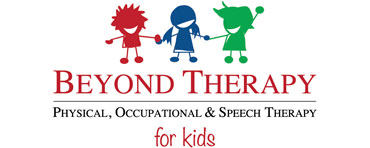There is no doubt that a child’s environment has a significant impact on the way he or she develops new skills and preferences. If we think back to the way we were raised, most adults will agree that times have changed, and our children are living and learning in a very different culture. In this article, we will look more closely at some of the areas of development that can be negatively influenced by the experiences that children today are exposed to early in life.
First, let’s talk about motor development. Twenty to thirty years ago, most children spent the majority of the day moving and exploring the environment by rolling, crawling, walking, and climbing in a safe space at home, daycare, or backyard and muscle development and mobility skills were learned as the child explored. In today’s culture, children are participating in more “container play” than ever before. Life today is busy. Parents are busy. Multi-tasking is required for most adults to survive the day. Life’s demands have been answered by new and improved
inventions to keep children occupied while adults tend to other things. Containers such as the bouncy seat, jumperoo, pack-and-play, exersaucers, walkers, Bumbo seats, swings, Boppy cushions, MamaRoo, booster seats, and carseats have become staples in American homes and daycares and are used to keep babies safe, confined, and entertained for much of the day. Infant bonding and attachment are harder when babies spend the majority of their time in a container and less time physically interacting with a caregiver and the environment. Less opportunity to move and explore often causes weakness and delays in motor milestones.
Another area of development that is suffering as a result of changes in our culture and increased busyness is the area of self-care. Families are on a tight schedule to get to school, work, ballgames, practice, or dance recitals and there is simply not enough time to allow a young child to dress himself or brush her own teeth or tie her own shoes. There is also not enough time to allow a toddler to practice feeding himself or learning to drink from a cup without a lid because an adult will have to take the time to clean up the mess made by the new learner when the food and drink are spilled. By not allowing time to practice these skills, a child’s independence and problem-solving skills are often below age level.
Feeding has been greatly impacted by changes in our society. Convenience foods such as prepackaged snacks, pouches, drink boxes, frozen toddler meals, and fast food have changed the eating habits of most children. Prepackaged and fast foods are the same every time the child eats it. Rather than experiencing a food that is prepared in a different way or that tastes and feels different based on ripeness or whether it is in season, kids are given foods that offer no surprises. The taste preferences are shaped by sameness, and a picky eater is the
result.
Finally, we need to discuss sensory development. Container play, less opportunity for exploration of the environment and development of independent self-help skills, and a diet that consists primarily of prepackaged foods all contribute to less sensory experiences in children. If a child is not allowed to explore the environment, touch messy things, play in their food, or eat foods that taste and feel different, then the child will develop hypersensitivity to touch, taste, sounds, and smells. A child who wears headphones and watches videos on youtube while in restaurants or in the car often misses out on the sounds and sights of the environment. They also do not fully attend to the textures that they feel. This sensory learning is important in developing a healthy response when the child encounters something unfamiliar. It helps the child distinguish between sensations that could cause harm or something that is pleasurable.
Life is rapidly changing and bringing new technology and conveniences. It is important for us as parents to ask ourselves, “When does busy become too busy?” when it comes to our children. Taking time to allow our kids to experience movement, social interaction, sensory experiences, and independence will help build the necessary foundational developmental milestones needed for a healthy, happy child.
Robin Friend, OTR/L, BCP, C/NDT is a an Occupational Therapist who works at Beyond Therapy in Hattiesburg, MS. Robin has worked as a pediatric occupational therapist since graduating from the University of Mississippi Medical Center in 1999. Prior to attending UMMC, she graduated from the University of Southern Mississippi with a bachelor’s degree in Biology. Robin is Board Certified in Pediatrics from the American Occupational Therapy Association and has specialty certifications in Sensory Integration and Neurodevelopmental Treatment. She serves on the Board for Advanced and Specialty Certification for AOTA as well as the Advisory Council to the Mississippi State Department of Health. Robin enjoys working with children of all ages and their families, and she specializes in the treatment of children with neurodevelopmental challenges, sensory processing difficulties, and feeding concerns. She lives in Hattiesburg with her son, Gavin.
